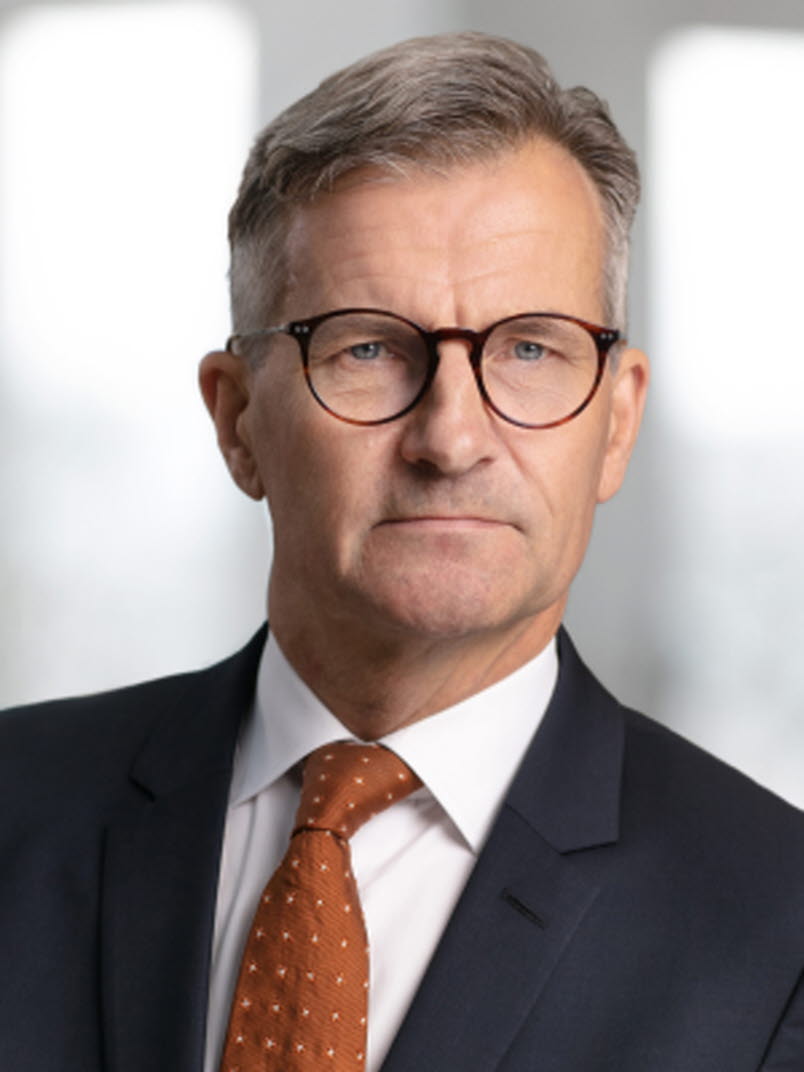Thedéen: We have lessons to learn from the turbulence of recent years
It is a particular challenge for economic policy makers when the economy is subject to rapid changes that are difficult or impossible to predict. In recent years, we have faced several such changes originating in events that have mainly had severe humanitarian consequences, but that have also had consequences for the world economy: a pandemic that shut down entire communities and meant that demand fell dramatically, Russia’s invasion of Ukraine, which strongly affected energy and food prices, and the war between Hamas and Israel whose consequences are yet to be seen. But even if we have not yet completely left this turbulence behind, there are some conclusions that can be drawn so far. These were the words of Governor Erik Thedéen, speaking at Carnegie Fonder on Wednesday.
Date: 20/12/2023 15:00
Speaker: Governor Erik Thedéen
Place: Carnegie Hall

Erik Thedéen, governor.
In the event of major disruptions, economic relationships can change
One lesson from recent years’ developments is that it is easy to get stuck in a world view that you think will last, if not forever, at least for a considerable time. Just a few years ago, most people thought that the very low inflation rate was here to stay. Inflation had long been below target in many countries and the international discussion before the pandemic had centred on the risk of it becoming entrenched at too low a level.
Another lesson is that major global disruptions can change seemingly stable economic relationships. In the Riksbank’s business surveys, companies had for years been indicating that it was very difficult to raise prices. However, the strong recovery after the pandemic seems to have made it possible for companies to quickly pass on cost increases to consumer prices to a greater extent. “In the future, really big shocks should be seen as a warning sign that economic relationships may be about to change,” said Mr Thedéen.
Not just supply shocks
Over the past year, the Riksbank has raised the policy rate to restrain the strong inflation. In the recent discussion, some have argued that the Riksbank has gone too far because they believe that the inflation was mainly due to supply shocks that monetary policy cannot do anything about. “I do not draw the same conclusion,” Mr Thedéen said.
Developments in recent years have been much more complex and are not just about supply shocks that monetary policy can ‘look through’. Demand recovered strongly after the pandemic, when vaccines could be produced surprisingly quickly. A pent-up need for consumption, not least in the tourist industry, was of great importance for the upturn in inflation. The change in pricing behaviour meant that the initial inflationary impulse spread widely throughout the economy, continued Mr Thedéen. When this happens, inflation will not return to the target just because the shocks fade away.
Not yet back to a normal situation
Of course, as we have yet to return to a normal situation, there are still conclusions to be drawn and lessons to be learned. The whole purpose of the Riksbank’s policy rate increases has been to bring inflation back to target within a reasonable time, at the lowest possible cost in terms of reduced demand. How successful this will be is not yet clear. It remains to be seen both how the real economy will develop and when inflation will sustainably be back on target. “Hopefully, the return to the target will be achieved through a relatively mild slowdown in the economy. This is, of course, our ambition,” said Mr Thedéen.
Since the monetary policy meeting at the end of November, there have been several positive signals regarding inflation, both in Sweden and abroad. In addition, the krona has strengthened. This is positive for inflation prospects. “Recent developments are welcome and suggest that inflation can continue to fall without our raising the interest rate further. But if there is one of the lessons I have learned from this turbulent period, it is that forecasts can be wrong. It is therefore still important to follow developments to see how they affect the economic outlook and inflation prospects and to adjust monetary policy accordingly. At our next monetary policy meeting at the end of January, we will return with the Executive Board's assessment of what is then an appropriate monetary policy to ensure low and stable inflation," concluded Mr Thedéen.
